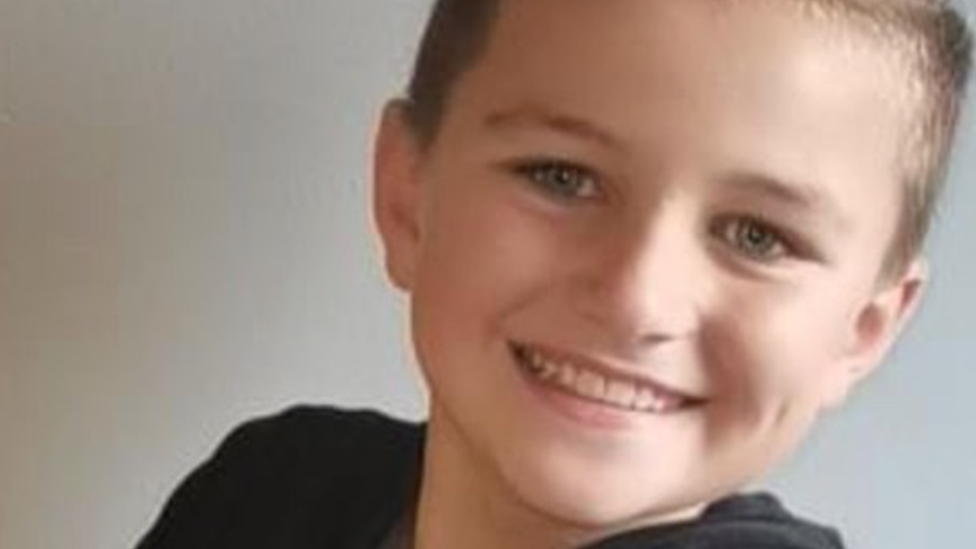Pembrokeshire: Mum struggles to understand son's drowning death
- Published
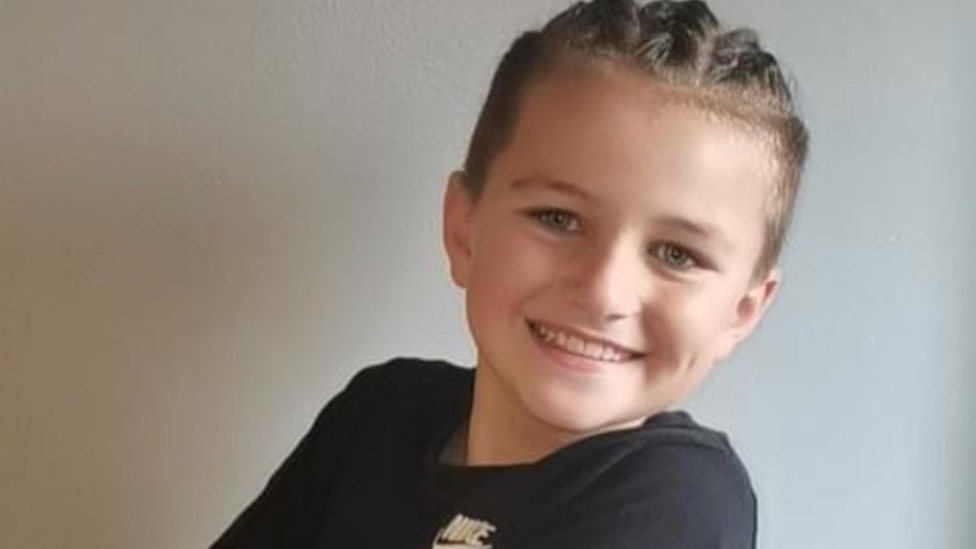
A wave swept Zac Thompson off rocks at West Angle Bay
A heartbroken mum whose son drowned at sea has said she "struggles to comprehend" what happened more than a year on.
A wave swept Zac Thompson off rocks at West Angle Bay, Pembrokeshire, on 1 July last year.
Carli Newell, 36, said the Pembroke Dock Community School pupil's death was still felt in the community.
She has now urged other families to be more aware of the danger the ocean poses.
An inquest heard the 11-year-old died after getting caught in a whirlpool.
He was with his brother and cousin, but the other two managed to get themselves back onto the rocks.
"They were playing football and they wanted to go watch the sunset," mother-of-two Ms Newell said.
"They had no intention of going into the water."
Zac was staying with his dad at the time.
As Ms Newell sat at home with her partner the phone rang.
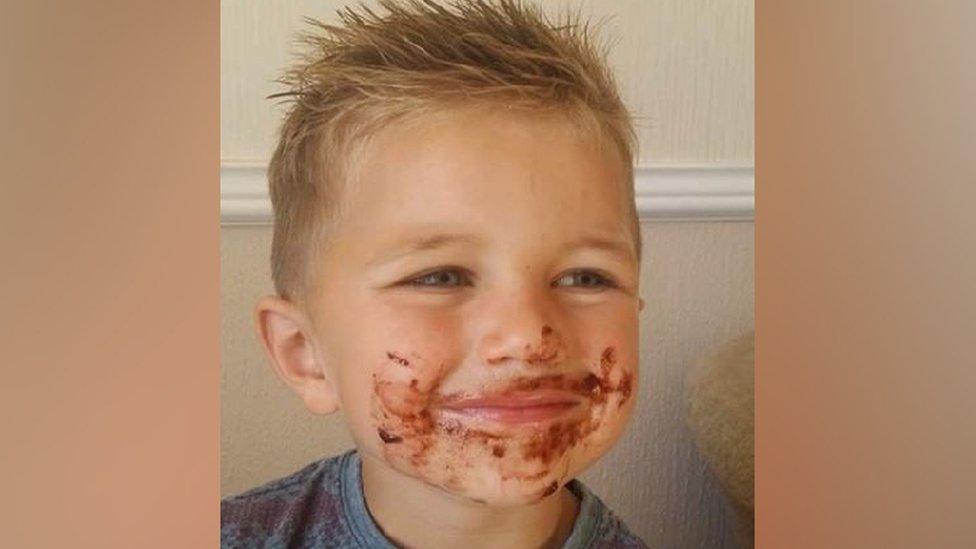
"Everybody loved him," says Zac's mum
She said: "It's about a 15-minute drive away, where the boys were staying.
"I got a call from my oldest son and we made our way to the beach.
"By the time we got there all the emergency services were already there."
Zac died in hospital the next day.
The impact of his death was "still palpable within our community", Ms Newell said.
'Everybody loved him'
"He was a character, everybody loved him," she told BBC Radio Wales Breakfast.
"He was funny, he was cheeky, he was a really good friend, good sportsman.
"He just had a larger than life personality, you could never meet Zac and never remember him."
Further tragedies could be avoided, said Ms Newell.
"The boys knew all of the usual stuff we teach our children," she said.
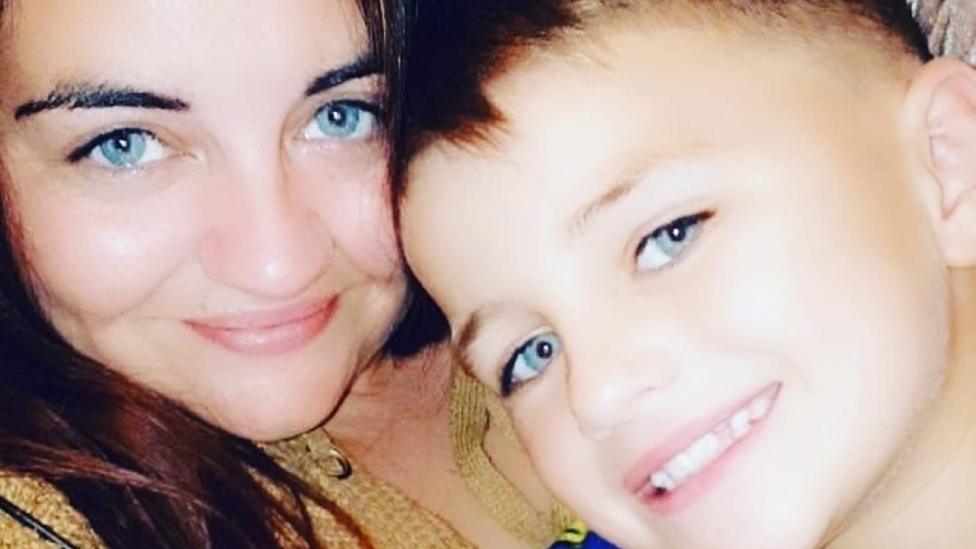
Zac's mum said she "struggles to comprehend" his death
She added it was important to highlight the high proportion of people who drown who have no intention of entering the water.
"When you don't ever intend to enter the water you're not prepared, so you have more layers of clothing. You then have injuries to contend with... you can have cold water shock," Ms Newell said.
"It does catch you off guard."
A new report by Water Safety Wales, Royal Society for the Prevention of Accident (ROSPA) and Public Health Wales, has found drowning deaths were disproportionately high among younger people.
Drowning is the second most common cause of accidental deaths in children in Wales, according to the document.
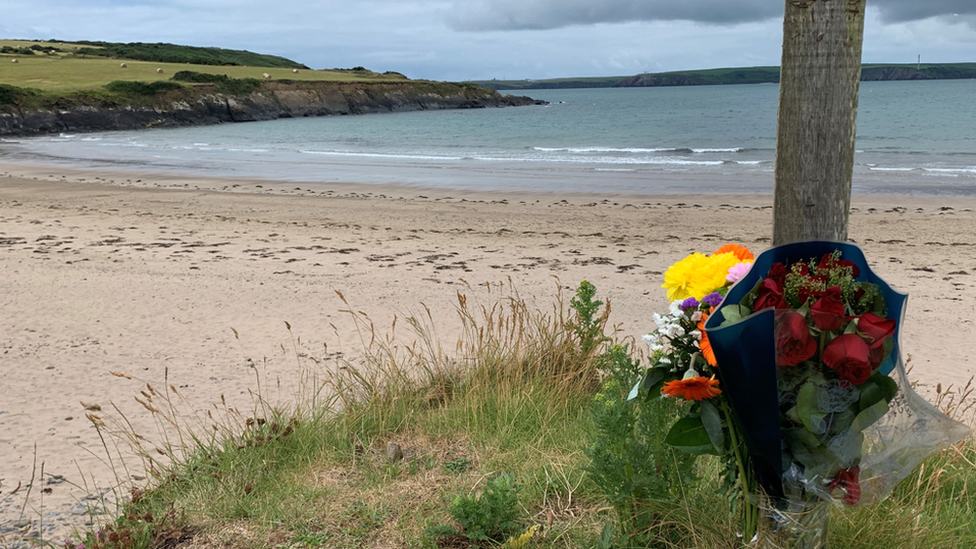
Floral tributes were left at West Angle Bay
Ms Newell said: "In Wales we are blessed with fantastic beaches, bays, harbours, lagoons and inland waters. The significance of water safety and education regarding appropriate actions during emergencies cannot be overstated.
The report highlights that almost half of deaths happen in June, July and August.
Ms Newell urged everyone to consider what more they could do to help children and young people enjoy the water safely.
"Take an extra five minutes before you go to the beach or before you go to the river just so you exactly what to do," said Ms Newell.
"It's knowing who to call depending on where you are and what to look for."
The RNLI reported a 46% increase in incidents across the 39 beaches watched over by lifeguards in Wales.
Lifeguards in Wales helped 2,315 people in 2022, an increase of nearly 40%.
Swansea lifeguard supervisor, Thomas John, said the huge tidal range in the Bristol Channel was an issue.
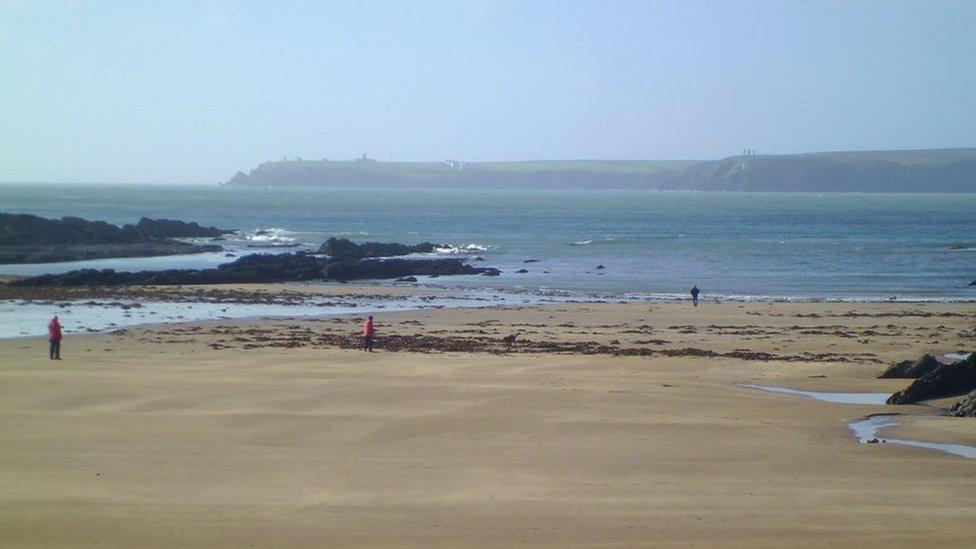
Zac died in hospital a day after being rescued
"There's loads of safety information online, getting the weather is very accessible on a mobile phone, getting tide times is very accessible but I think people... need to know those things before visiting the coast," he said.
He also urged people to float on their backs if they got into trouble.
Water Safety Wales chairman, Chris Cousens, said it was important to educate families to prevent child deaths.
He said: "It is sobering to reveal that almost half of the children and young people were taking part in activities where they had not intended entering the water, just like Zac when the fatal incident occurred."
Related topics
- Published4 July 2022

- Published10 February 2023

- Published14 July 2022
